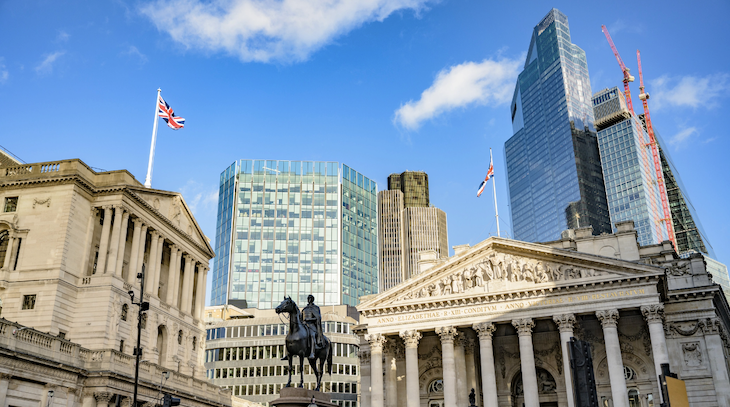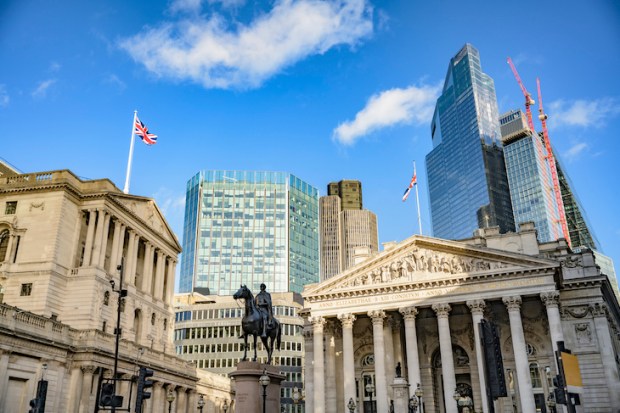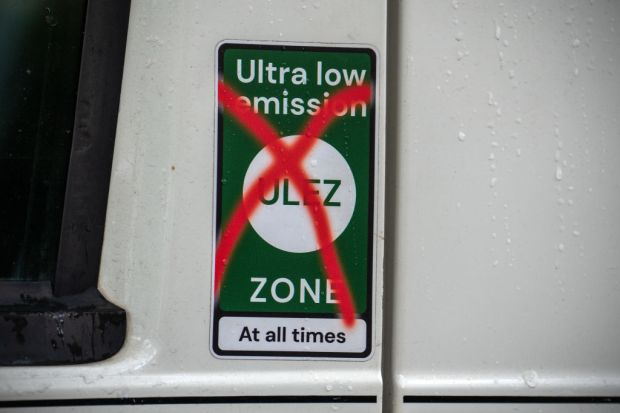Tech start-ups tend to involve taking big risks on ideas which are untested both in terms of technology and the market place. Yet it isn’t blind faith in new ideas that is threatening to bring down scores of British tech start-ups over the next few days: it is boring old bonds. Many start-ups have relied for financing on Silicon Valley Bank UK, an offshoot of its larger US parent. Over the last few years, the institution has in turn relied on taking bets on government bonds whose value had been inflated by near-zero interest rates. As interest rates have risen, those bets have gone sour. On Friday, the Bank of England announced that the bank is to enter insolvency.
The Bank of England tried to reassure investors by stating that Silicon Valley Bank UK ‘has a limited presence in the UK and no critical functions supporting the financial system’. Yet that somewhat understates the scale of crisis faced by the tech sector and by the government – and by the wider economy.
Is the Silicon Valley Bank a canary in the coal mine
Tech has already had a wretched year as the era of zero interest rates has come to an abrupt end. For years, it was possible for businesses to raise capital for pretty ambitious ideas, many of them quite lousy. With debt so cheap, the risks seemed small, and timeframes over which companies might be required to make a profit seemed very long. Over the past 18 months, as inflation and interest rates have risen, there has been a lot less tolerance shown by banks and other investors towards businesses whose chance of making a profit lies in the distant future.
The collapse is a poor backdrop to this week’s Budget which, as ever, we can expect to be filled with boosterish promises about building an economy built on innovation. Life for the green tech, life sciences and fintech sectors just became a whole lot harder. If Silicon Valley Bank, which was started specifically to fuel US tech start-ups in the 1980s, is no longer around then how many other lenders will rush in to cover this specialist field, especially in the current climate?
On Saturday, the CEOs of 210 UK tech companies which employ 10,000 people between them signed an open letter to the Chancellor, begging for help. Over the past few hours, Jeremy Hunt has suggested that the government might intervene to help companies at risk – beyond refunding the first £85,000 they have on deposit. But he quickly rowed back on suggestions that he would guarantee all deposits. He told Sky:
‘We will bring forward very soon plans to make sure people are able to meet their cashflow requirements, pay their staff. But obviously what we want to do is to find a longer term solution that minimises or even avoids completely losses to some of our most promising companies’.
Exactly what help he has in mind, we will have to wait to see. He will have to be very careful about moral hazard – encouraging reckless bets by the banking sector by bailing everyone out when things go wrong.
But there is a wider question: is the Silicon Valley Bank a canary in the coal mine for wider problems in the banking sector – the Northern Rock which presages a much wider collapse?
While the bank may have had a small and niche role, its source of funding – the bond markets – is hardly unique. If it has suffered problems as bond prices have collapsed, many other banks must be feeling the strain, too. It was a whole 12 months between the collapse of Northern Rock in September 2007 and the demise of Lehman Brothers, followed by the bailouts for RBS and many others. During that time, many felt confident that the contagion would not spread. We face many nervous months before we can be sure that the Bank of England’s reassurances about a limited effect on the wider financial system are correct.
Got something to add? Join the discussion and comment below.
Get 10 issues for just $10
Subscribe to The Spectator Australia today for the next 10 magazine issues, plus full online access, for just $10.





















Comments
Don't miss out
Join the conversation with other Spectator Australia readers. Subscribe to leave a comment.
SUBSCRIBEAlready a subscriber? Log in